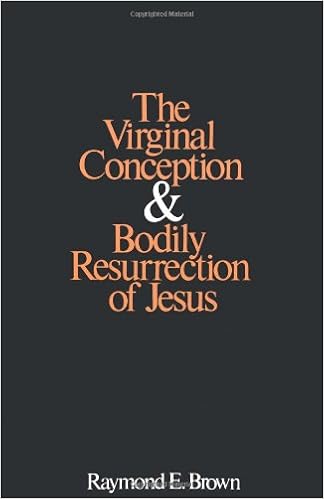References: Matthew 9:2-3 Mark 2:7 John 5:18b John
10:33
David Martorana is a friend of mine and also a sound evangelical
scholar, theologian, teacher and pastor. He has done a Masters in a specific
kind of theology known as kenosis. He is – I think – Calvinist and needless to
say also a strong Trinitarian. I was not a very strong anything at the time I was working
through some of my early questions, so when I shared some of these with him and
he argued without batting an eyelid from John 10:33, I knew I had better shut
up and listen:
We are not stoning you for any good work,’ they replied, ‘but
for blasphemy, because you, a mere man, claim to be [a] God.
But is it that simple? No, it definitely is not. I have now
discovered this to be another clear example of interpretation, and that the
passage is not at all without other sound exegetical possibilities. Context will
show us why.
In verse 24, the Jews gathering around Jesus are desperate
to get some yes/no clarity on whether or not Jesus really was God’s messiah. As
is his typical way, Jesus does not give a straight-up answer, but seems to be
basically affirming that he is identifiable as the Messiah by the works he does
in the name of his Father (verse 25), and by how his followers know him to be
that One, the promised Messiah. Jesus seems to then say that God the Father is
the greatest of all
. Then
we get the “assist” – in football, the player who sets up the team-mate who
scores the goal is recognised as having provided the “assist”, and in verses 28
and 29 we get just that. Like the crucial pass before the goal, we get to the “assist”
of Jesus’ discourse: no-one shall pluck them out from
my hand (Jesus’ hand), and no-one shall pluck them from my Father’s
hand (and
he is the greatest). You
can sense the crescendo here, and then the volley into the top corner of the
net:
I and the Father are one.
We have already analysed what John means (or the limits of
what he means) when he talks about multiple persons being “one” in the
preceding section. In addition to this we know that this figurative language is
not only at work in the word “one”, but also in the word “hand” – the Father
does not have physical hands – only the Son, according to Trinitarian theology,
became incarnate. But that does not mean that Jesus’ figurative language was
bullet-proof against misunderstanding. The New Testament contains many examples
of where Jesus was misunderstood by people, especially the religious
authorities, and even at times by his own disciples. Despite my friend David’s
traditional interpretation of this passage, we shall see that the ensuing
allegations of blasphemy do not automatically qualify Jesus’ claim as that of being Almighty God – it may well even be
the least probable idea present in Jesus’ (and John’s) mind.
Now Jesus could have remained silent, as he does later
before his crucifixion, in which case we would have been left with less context
and open to wider speculation on the blasphemy accusations. But on this
occasion, John recalls him replying in the form of two questions – either to
affirm the allegations, deny them, or to say something else: that is up to
every student of the Holy Scriptures to decide.
Question 1 (verse 34): Jesus
answered them, ‘Is it not written in your Law, “I have said you are gods?” (yes/no
question)
Question 2 (verses 35-36): If he called them gods, to whom the word of God [be]came – and
Scripture cannot be set aside – what about the one whom the Father sanctified as
his very own and sent into the world, are you saying that I am blaspheming
because I said “I am God’s Son”?
(yes/no question)
Finally, verse 37 reiterates almost exactly Jesus’ initial
response (verse 25) to whether or not
he is the Messiah – he is doing the Father’s work.
Because I knew (and still know) a lot less in theology than
David, and it seemed that Jesus’ answer seemed nuanced and far from
affirmative, I did some research into Jesus’ questions in the New Testament.
There is a fairly obvious reason why Jesus’ questions do not feel affirmative,
and that is because of the way rhetoric works, and also how Jesus consistently
uses rhetorical questions. This is what I found out.
Jesus asks approximately 150 questions in the New Testament,
and the majority of these are rhetorical. We can divide them into:
·
“either/or” questions (e.g. “From whom do the kings of the earth collect
duty and taxes–from their own sons or
from others?”)
·
“How” questions (e.g. “
Salt is good, but if it loses its saltiness, how can it be made salty again?”
)
·
“What” questions (e.g.
“If you love those who love you, what
reward will you get?” )
·
“Where” questions (e.g.
“Were not all ten cleansed? Where
are the other nine?” )
·
“Who” questions (e.g.
“Who of you by worrying can
add a single hour to his life?” )
·
“Why” questions (e.g.
“Why are you trying to trap
me?” )
·
“
Yes/no”
questions (e.g.
“Have you never read in the Scriptures?” )
This “yes/no” is the category that is of the most interest
to us, but the whole rhetoric strategy needs to be kept in full view to help us
answer Jesus’ rhetorical questions. In almost every case of rhetorical
questioning, there is something negative
in the expected response. That is not because Jesus was a negative person; it
is simply part of how rhetoric functions. So the point is that rhetorical
questions are designed to make the listeners think and, if possible, align
themselves with the speaker. It is not about
gathering new information. However, if you were to reply in English, they
usually require a negative form to get to where the speaker is driving the
conversation.
So it looks something like this:
·
Salt is
good, but if it loses its saltiness, how
can it be made salty again? OK Jesus, I get it: it cannot.
·
If you
love those who love you, what reward
will you get? OK Jesus, I see now, I won’t
get a good reward that way.
·
Were not
all ten cleansed? No, “not not” all ten were cleansed à OK Jesus, it is not true
that not all ten were not cleansed (all
10 were indeed cleansed!)
·
Where are the other nine? Sorry Jesus, I do not know, something is wrong,
they should be here but they are not.
·
Who of you by worrying can add a single hour to his life? I think I get it
Jesus: no-one can!
·
Why are you trying to trap me? OK Jesus, I can see what you are saying: we
should not be trying to do that.
·
Have you never read in the Scriptures? Jesus you know that is not true, that I have read it, but
maybe I did not understand it…
The double negative “not not” above is ugly. The French have
a neat way out of the negative question; they simply say si. If an implied si is
required by the speaker to correct the negative tension in the speaker’s yes/no
question, then it is probably rhetorical!
So bearing this negative tension in mind we can return to
the blasphemy arguments used by Trinitarians.
Jesus answered them, ‘Is
it not written in your Law, “I have said you are gods?” (yes/no question)
Si, it is written in
our law “I have said you are gods”.
If he called them gods, to whom the word of God [be]came – and
Scripture cannot be set aside – what about the one whom the Father sanctified
as his very own and sent into the world, are you saying that I am blaspheming
because I said “I am God’s Son”?
This second one is a little more complicated, and some translations
separate it into two questions. Remember above how some examples of Jesus’
rhetoric were to get listeners to think about what they should not be doing. All we can conclude from this question is that
the speaker, Jesus, was driving his Jewish accusers toward this conclusion: “OK Jesus I was saying that, but I should not have been”.
One unresolved point remains, and it will remain as such – should
there or should there not be an indefinite article before “GOD”? We have
already seen how biased interpretation regarding the articles has meant people inconsistently
read into Justin Martyr’s theology. In Greek, the absence of the article might
mean nothing. However, its absence could also be the indefinite article, “a”.
Both are possible. However, exegesis leads to a distinct possibility of an
intended indefinite article here, simply because of the way Jesus responds to the
Jews from Psalm 82. Psalm 82 (Yahweh presides over the council of the gods),
Exodus 20 and Deuteronomy 5 (You shall have no other gods before me) and Deuteronomy
32 (the writer tells that the Israelites must remember when Yahweh allotted the
nations to various “sons of God”
)
paint a different picture of monotheism to the one we often adopt today, and
certainly do not require us to add the inserted quotations marks around “gods”.
Although a more modern scheme of monotheism might require that addition, when
we try to understand the Jewish views in Jesus’ time, we need to exercise more
caution.
Returning to a similar passage in Mark where Jesus is
accused of blasphemy, we see the outrage: who can forgive sins but God alone?
Or more literally, who can forgive sins if not one, the God. This time we have
the definite article, and indeed for Mark’s teachers of the law, if Jesus, this
son of Man, should be forgiving sins then he would be blaspheming on that
level. The title The Son of Man applied to the issue of sin-forgiveness is
blasphemous precisely because a son of man, in Old Testament parlance, is
equivalent to saying “human”
.
The shocking point of Mark’s gospel is underlined then in this story that Jesus
as
this human has a very special
status and authority as God’s Son (Mark 1:11). The stress of this Markan
story therefore is not so much the blasphemous claims of
divine identity as the
blasphemous claims of
divine authority,
and is further borne out by Mark 2:8 (and Matthew 9:6): “But that you
may know that the
Son of Man has authority on earth to forgive…”
It would seem that in order for Jesus’ accusers’
outrage to be suggestive of Jesus somehow claiming to be a second member of a
triune God, we would need to ignore a distinctively possible alternative
explanation: that Jesus incited outrage and was condemned blasphemous, because
he claimed he was the special Son of God,
sent,
authorised,
anointed
and empowered
by God his Father to save God’s people. Not only that, he combined into this
claim the counter-attack that the religious authorities were doing quite the
opposite. The fight was on and both sides had to get out the biggest guns in
their arsenal. Jesus’ was astonishing confidence, appeal to miraculous signs
and expounding embarrassing truth with hyperbole, parable and rhetoric. The
religious authorities’ was social standing and condemnation of the highest
degree.








